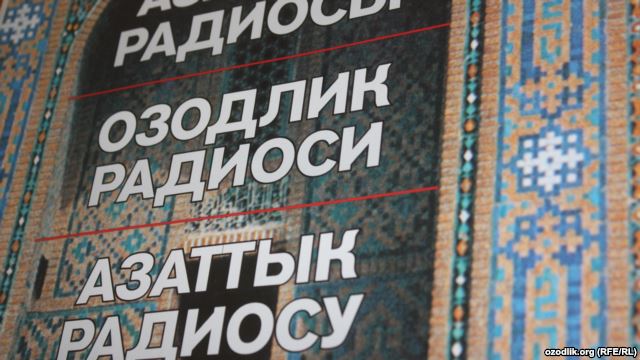Fighting Censorship in Uzbekistan, One Entry at a Time

 For decades, Uzbekistan has been counted among the world’s most restrictive societies, ranking at the bottom of surveys on fundamental freedoms and human rights.
For decades, Uzbekistan has been counted among the world’s most restrictive societies, ranking at the bottom of surveys on fundamental freedoms and human rights.
Far from being silenced by the country’s rigid censorship regime, RFE/RL’s Uzbek Service, known locally as Radio Ozodlik, is pioneering ways to collect and generate information for audiences eager for knowledge and news.
Radio Ozodlik recently launched the OzodWiki project, a partnership marrying the service’s reporting capabilities with the resources of the Uzbek edition of Wikipedia, the online, crowd-sourced encyclopedia.
Like virtually every other independent information initiative, Wikipedia is currently blocked inside Uzbekistan. The explanation is simple, according to Alisher Sidikov, Uzbek Service director, who says that in content and concept it is simply at odds with the country’s authoritarian order.
The OzodWiki project involves hyperlinking selected words and phrases that are used in Radio Ozodlik reports to entries in Wikipedia where they are defined and explored. The relationship is mutually beneficial, enabling Ozodlik users to click through to expanded information resources, while popularizing Wikipedia by driving new topics and audience their way. In addition, Radio Ozodlik recommends current topics for Wikipedia to define, while Wikipedia sources content to Radio Ozodlik.
Sidikov explained that whenever possible, he seeks to publish reports in step with Wikipedia’s content to provide users with the fullest possible understanding of current events and maximize readership for both partners. This strategy was on display during the Euromaidan demonstrations in Ukraine and Russia’s annexation of Crimea in March: Radio Ozodlik published a series of reports using the words “Euromaidan” and “annexation,” and Wikipedia posted entries explaining the terms for its readers.
“It’s a nice cooperation where we don’t have to do background,” Sidikov said. “There is a team of Wikipedia contributors who add the background to those stories which are vital.”
The partnership has generated related projects, including a regular radio program on Radio Ozodlik that highlights Wikipedia’s main contributors and topics for the week.
Since the launch of the partnership in February, 2014, visits to Wikipedia’s Uzbek edition have risen 300 percent, totaling approximately 136,000 visits in April. Sidikov attributes much of the growth to the discovery of Wikipedia by Radio Ozodlik visitors, and the site’s increased attention to current affairs.
In another measure of Wikipedia’s new popularity, Sidikov says that individuals have contacted it asking to write for the site.
The project has also raised Radio Ozodlik’s visibility, since Wikipedia frequently cites it as a source.
“When one day Wikipedia becomes accessible in Uzbekistan.” said Sidikov, “there is no doubt that people will be looking up information based on Radio Ozodlik’s reports.”
The Uzbek version of Wikipedia, which currently logs upwards of 100,000 articles, is published with the help of Nodir Atayev, an administrator of the site who himself has contributed over 1000 entries. Ataev, 27, is a graduate of the Soros-funded Central European University.
Sidikov said that Radio Ozodlik had been following the rise of Wikipedia and the work of Atayev and his partners before embarking on the project.
“You’ll rarely see these types of people in our part of the world who would do it for free and just for one vital cause, which is to add information,” he said.
